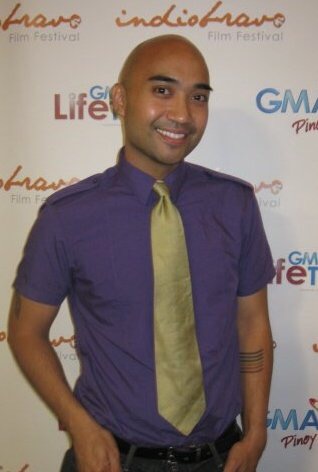Top Qs
Timeline
Chat
Perspective
Kevin Nadal
American writer From Wikipedia, the free encyclopedia
Remove ads
Kevin Leo Yabut Nadal is an author, activist, comedian,[2] and Distinguished Professor of Psychology at John Jay College of Criminal Justice and The Graduate Center of the City University of New York.[3] He is a researcher and expert on the effects of microaggressions on racial/ethnic minorities and LGBTQ people.[4][5]
Remove ads
Education & academic career
Summarize
Perspective
Nadal received Bachelor's degrees in psychology and political science from the University of California, Irvine, a Master's degree in counseling from Michigan State University, as well as a Ph.D. in counseling psychology from Columbia University.

From 2014 to 2017, Nadal was appointed as the executive director of CLAGS: the Center for LGBTQ Studies (formerly known as Center for Lesbian and Gay Studies).[5] In the organization, Nadal also co-founded the Division on Filipino Americans.[6] Nadal is a national trustee of the Filipino American National Historical Society.[7]
Nadal's book Filipino American Psychology: A Handbook of Theory, Research, and Clinical Practice (Wiley, 2011)[8] was noted for being the first comprehensive book on Filipino American mental health issues.[9][10][11] Nadal has gone on to release other books on this and related topics.[12][13]
Nadal's research and writings concentrate on race, ethnicity, sexual orientation, gender, and the concept of racial microaggressions, and other microaggressions or subtle forms of discrimination towards racial/ethnic minorities, women, and LGBTQ populations.[14] He created and published the Racial and Ethnic Microaggressions Scale in the Journal of Counseling Psychology in 2011.[15] Nadal has also researched "sexual orientation microaggressions"[16] In 2013, Nadal released That's So Gay!' Microaggressions and the Lesbian, Gay, Bisexual, and Transgender Community.[17][18]
Remove ads
Awards
- John Jay College Scholarly Excellence Award (2015) [19]
- Outstanding Filipino Americans of New York (2015)[20]
- APA Early Career Award for Distinguished Contributions to Psychology in the Public Interest (2017)[21]
- Western Society of Criminology Richard Tewksbury Award (2019)[22]
- Robert Wood Johnson Foundation Thought Leadership Award (2019)[23]
Personal life
Nadal was raised in Fremont, California.[24] During his high school years, Nadal reports being bullied for being gay.[25] Since 2010, he has become vocal about ending bullying in schools.[26]
Social justice advocacy
Summarize
Perspective
Nadal has written or spoken about the need for Filipino Americans to address colorism within their families and communities,[27] the need for people to challenge homophobia and transphobia,[28] the experiences of invisibility and marginalization of Filipino Americans and other "brown Asians" in the general Asian American community,[citation needed] the racial microaggressions LGBTQ people of color experience in dating and sexual relationships,[29] the systemic colorblindness and marginalization of people of color in queer studies,[30] as well as anti-black racism.[31]
In 2007, Nadal gained attention with several media outlets when he started an online petition against ABC Studios for negative statements made about Philippine medical schools on the television show Desperate Housewives.[32][33]
In 2014, Nadal formed the LGBTQ Scholars of Color National Network as a way to provide support for LGBTQ people of color in academia.[citation needed]
In 2016, Nadal and his colleagues wrote an open letter to the New York Times for their lack of Filipino American representation in a video segment that described Filipino American experiences.[34][35][36]
Nadal was also very vocal about addressing racism and Islamophobia in response to the Pulse tragedy in Orlando.[37]
In 2017, American Psychologist published Nadal's "Let's Get In Formation": On Becoming a Psychologist-Activist in the 21st Century, where he argued of the ethical responsibility for psychologists to "combat oppression on individual, interpersonal, group, and institutional levels."[38]
Remove ads
See also
References
Wikiwand - on
Seamless Wikipedia browsing. On steroids.
Remove ads

